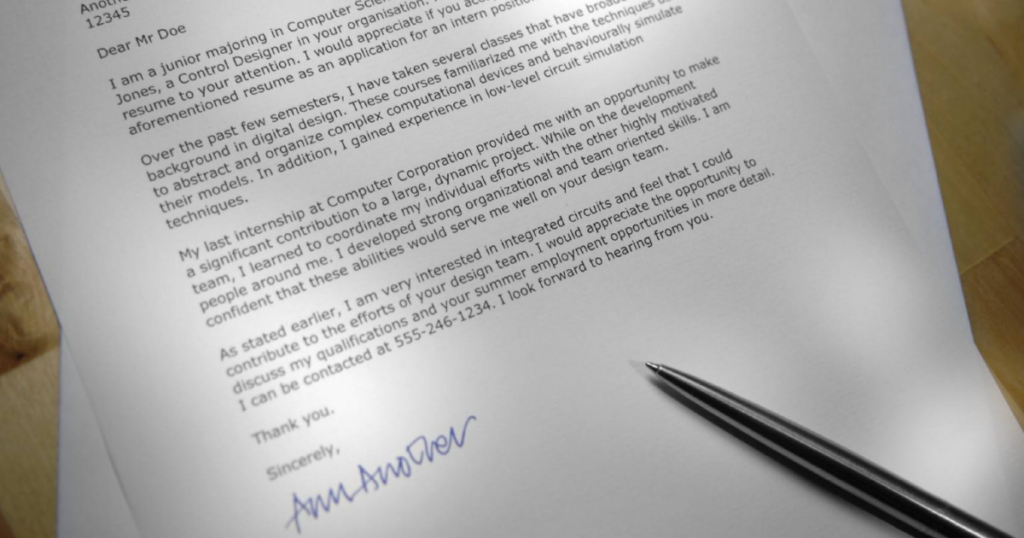
Free, professionally-designed cover letter templates for you to customise and use at will. Each cover letter template is designed to make a lasting impression with the recruiters and hiring managers. Elaborate your story on a beautifully designed cover letter. Stand out from the crowd, get noticed, and get hired with our free cover letter templates.
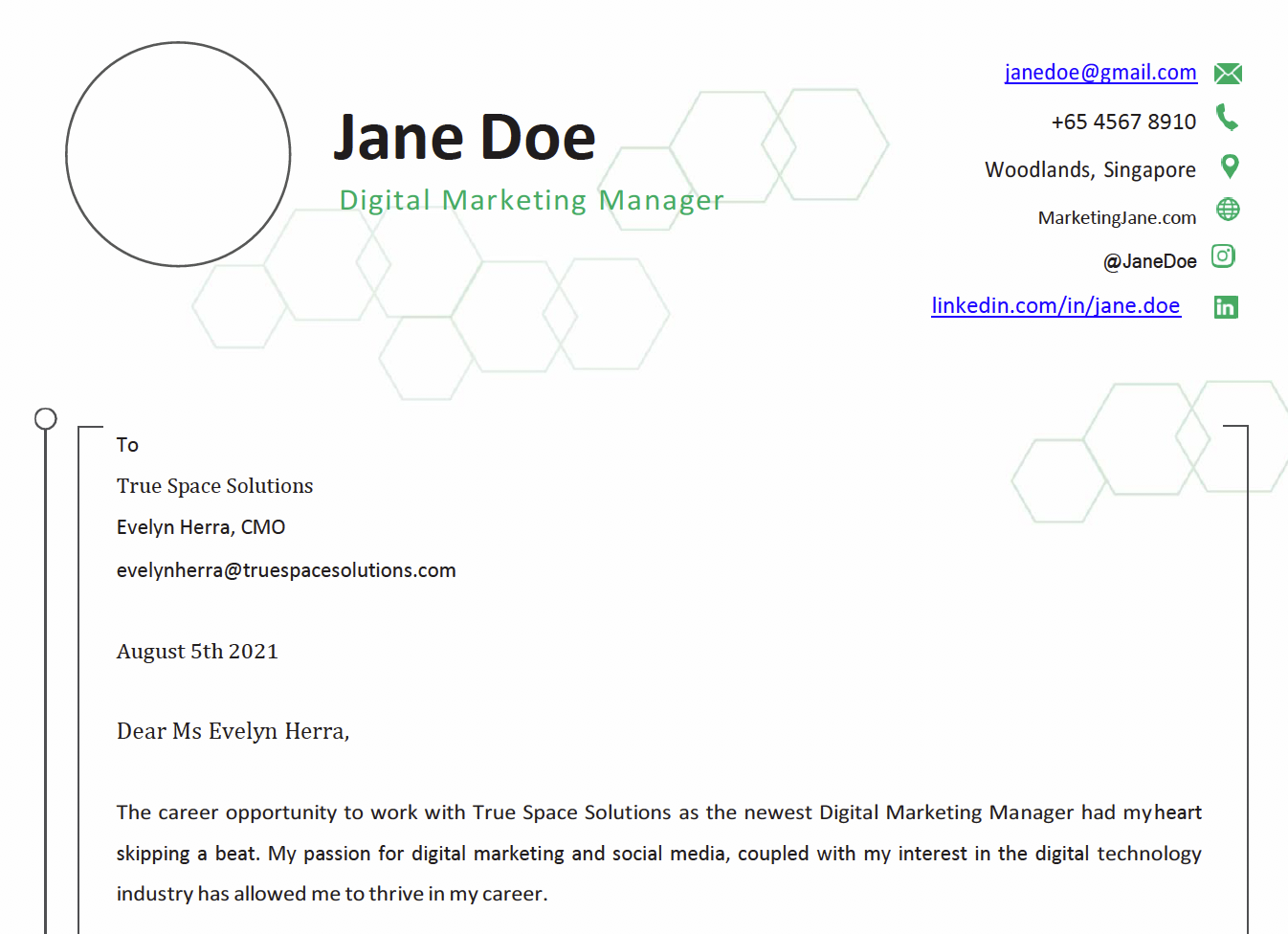
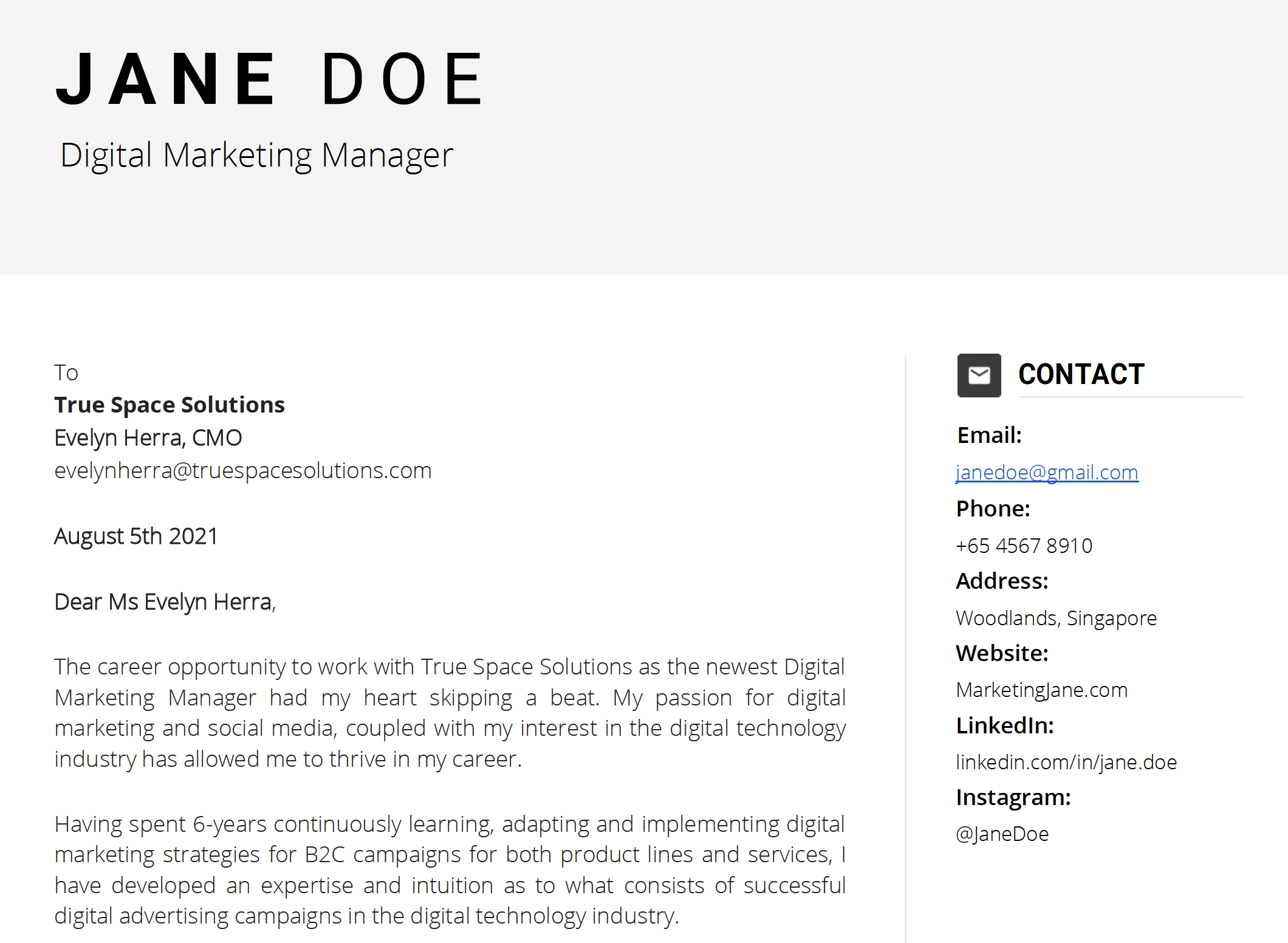
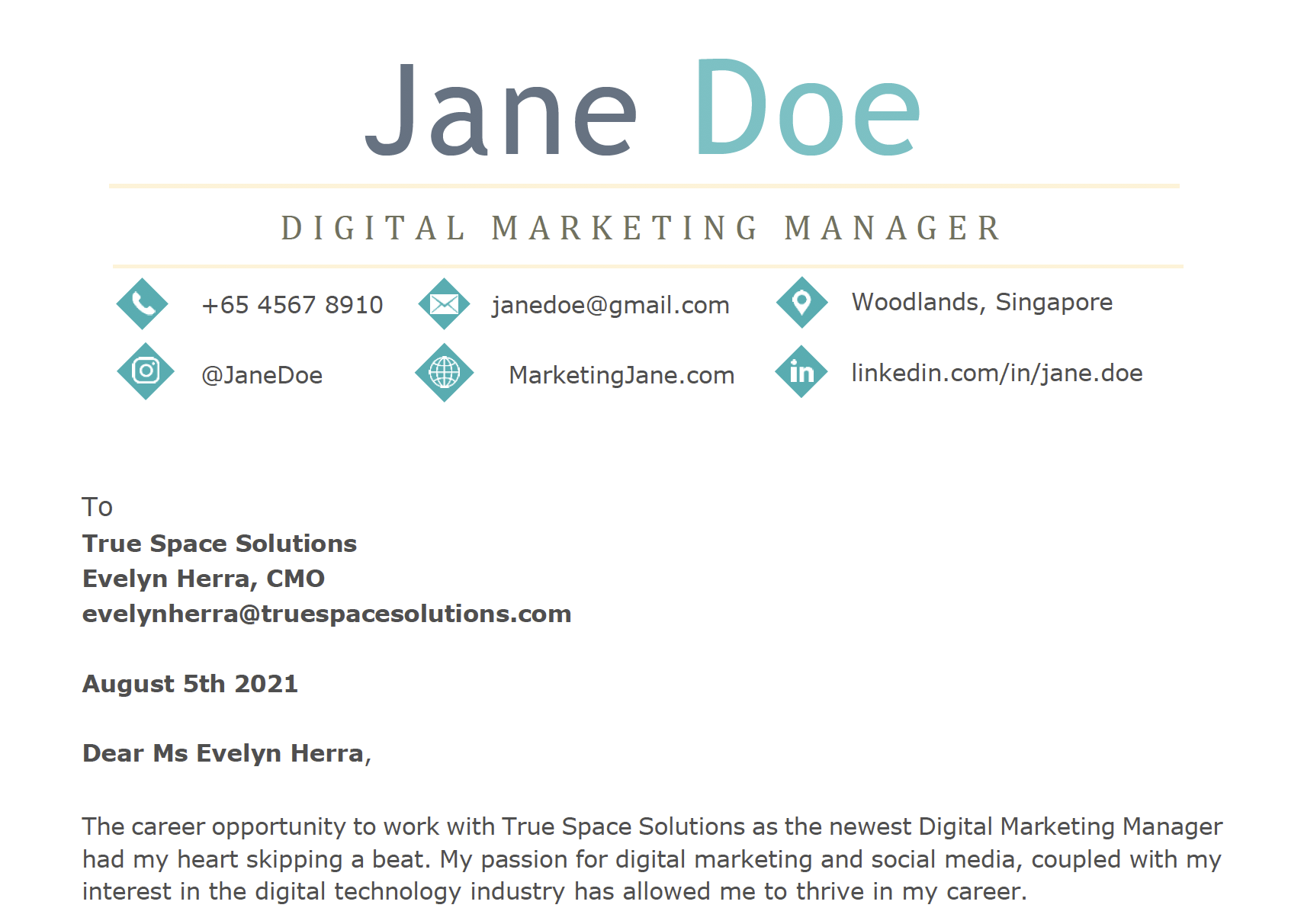
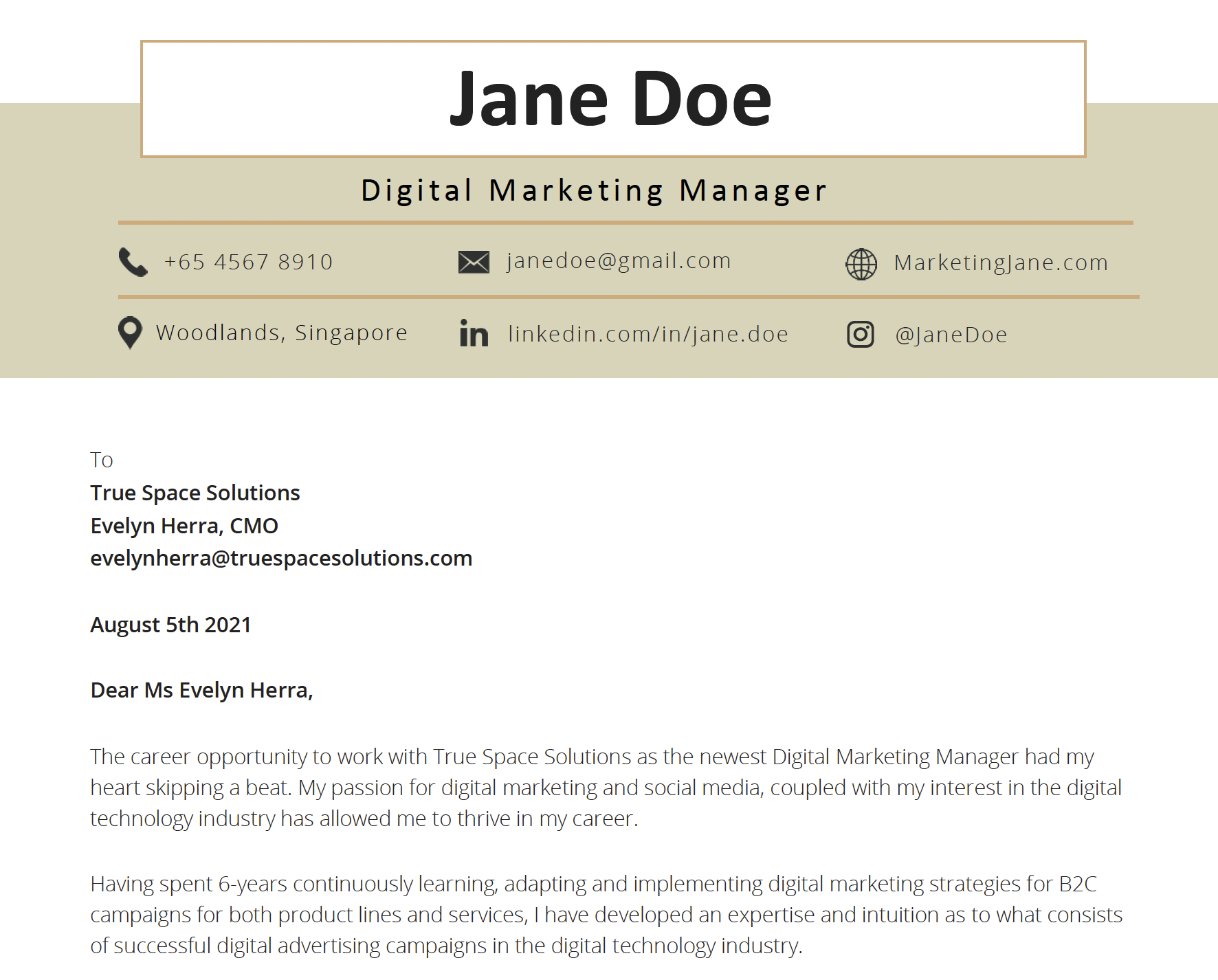
A cover letter is an ideal companion to your resume or CV. It’s a one-page letter with a compelling story of your career, discussing only your highest achievements. Put your best foot forward with a cover letter that sparks the interest of potential employers.
You’ll want to write a new tailored cover letter for every job you apply for, highlighting not only your interest but why you are the ideal candidate for the role and the company. Note that a cover letter should never repeat what’s listed on your resume or CV, but instead expand on them and other areas of your career that have contributed to your accomplishments.
A cover letter is essentially a well-formatted formal one-page essay written with the intention to wow the reader and have them curious about how you can help their organization with the experiences you possess.
A cover letter is personal, and so make sure to use this as a guide. Include as many or as few paragraphs within the perimeters of one page with clean margins and spaces. But sticking to this outline will ensure a well-received cover letter.
Resumes and CVs are a completely different ball game compared to a cover letter. You may interchange or use a few of the same tips and tricks between a resume and CV, but a cover letter requires a set of different tips.
Yes, good grammar and spelling are essential when writing a cover letter. This means unlike with a resume or a CV, you’ll want to include the “I” where applicable to you speaking about yourself.
Make sure sentences flow, and the two best ways to ensure that are to read the cover letter out loud or ask someone to read and edit accordingly. Your sentences should not be very long or sound too formal and stiff. There should be a hint of personality, especially at the very beginning.
One similarity across the board between resumes, CVs and cover letters are tips and tricks to using action words. These powerhouse words can make the biggest difference when used right with thought behind them.
Action words are adjectives, used to describe. In terms of cover letters these words create an impact and pull readers into the subject at hand. Now, this doesn’t mean you should pull up a thesaurus and use the most spectacular sounding words. Sometimes using simple action words can have just as much of an effect as a bombastic action word.
For example, a simple action word would be helped, and the more enthusiastic action word would be strengthened. Both are great, and depending on the sentence one or the other can be used just the same without worrying about sounding too simple or too over the top.
An outline is always helpful when writing a cover letter, making sure you have a clear coherent message. List out the accomplishments and points you’d like to expand upon in a flow that makes sense.
Have several outlines ready for the different cover letters you’ll write for the different open roles you want to apply for. You’ll save time down the road by doing this.
Don’t include anything about your previous salary or what your salary expectations are for this role. This is a verbal discussion that should only be had during an interview.
Reserve all questions and inquiries in a separate email from that of your application or ask them at the end of the interview.
As mentioned before, avoid repeating points and sentences from your resume or CV. Instead, you should reference the points you want to highlight from your resume and CV in a natural way in your cover letter.
Images are unnecessary for almost every job out there unless you’re an actor, singer or model. In that case, a cover letter won’t do you any good. Understanding what is required and the role of a cover letter will help you plan exactly what and how to make an impression on a potential employer. Just remember to stick to a simple one-page format and never repeat points from a resume or CV, instead learn to expand on the important points mentioned in your resume or CV.